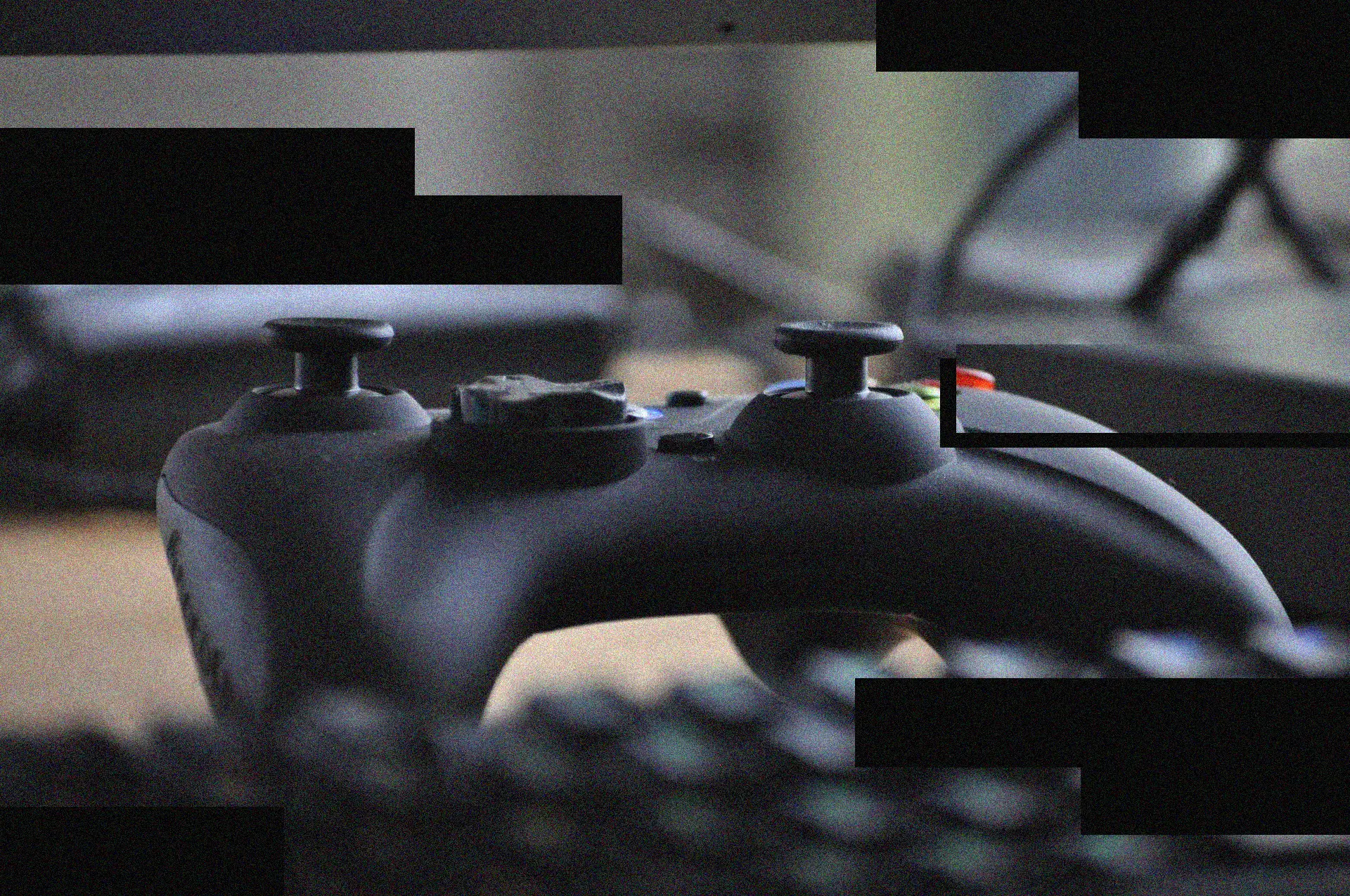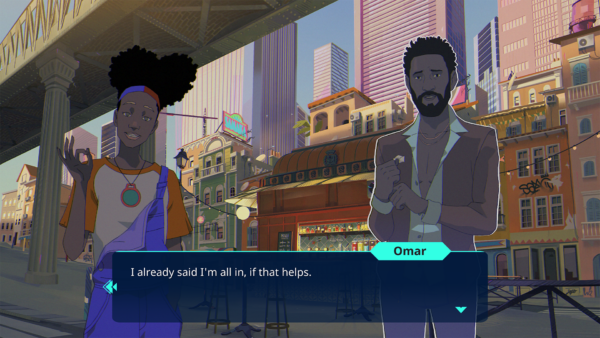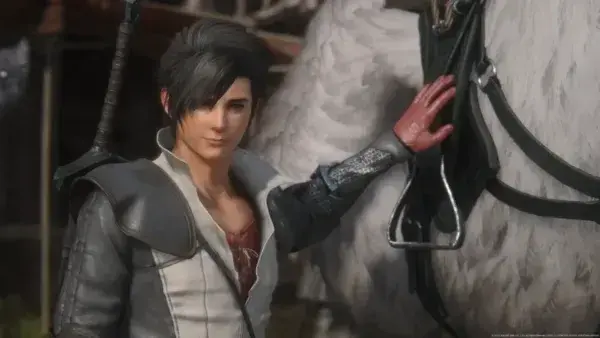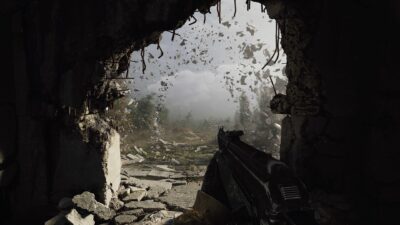
It’s okay to find comfort in pretend worlds to protect yourself from the horrors of the real one, Vikki writes.
I was going to write about something different tonight. I had two ideas: one a touch silly, one a touch ranty, and yes, I think I had just about decided to write the ranty one. But then the world imploded and war crimes happened and thousands of people died, and it’s hard to write 800 words complaining about anything given I’m sat here daydreaming in my warm office with a hot drink and a sweet treat and not picking up what’s left of my family from the rubble that used to be our home.
In times like these, much of what I write about feels redundant to the point of pained hilarity. Yes, there are plenty of things to get wound up about – I’m still raging about the recent round of game industry job cuts, for starters – but let’s not get carried away. We’re just writing about games here, pal, and puzzles and stories and make-believe worlds quite rightly pale into insignificance when compared to the dehumanising suffering of millions.
The last time I felt this heavy – this hopeless – was in early 2020, when thousands of people were dying not just because of a virus we didn’t understand, but because of the murderous indifference of the people we’d elected into government mistakenly believing they could keep us safe. After the novelty of staying home and discovering that I do my best work in my PJs, the grief and anger and hopelessness of that time dropped on me like an avalanche. How could I keep writing about release delays and ray tracing and how impossible it was to secure a £500 plastic games console when thousands of people were dying before their time? How could I sit in my office, surrounded by figurines and posters and shamefully expensive collector’s edition toys when dead bodies were stacking up in makeshift morgues? Compared to that, getting wound up about video gaming is ridiculous, isn’t it? Indulgent. And woefully unimportant.
Yet games became my lifeline, too. A single beacon of joy in an ocean of despair and anger.
Hyperbole? Maybe. That doesn’t make it untrue, though. As I struggled to comprehend the new world order and adapt to an entirely new way of working (a way that, for decades, our bosses had told us was not possible, of course), games were more important to me than ever. I lost myself in the expanses of wide, open spaces because suddenly, exploring real-world open spaces was forbidden. I lost myself in the same stories and adventures I’d grown up with because in a world where nothing made sense, these worlds, at least, were predictable and ordered. I visited my friends via Dodo Airlines because hanging out on the beach in Animal Crossing: New Horizons was the only place we could be together, and party chat became as important for my mental health as it was to conveying FPS tactics.
So every time I quietly despair at the in-fighting and the console “wars” and the endless complaints about things that, quite honestly, don’t bloody matter – not in the scheme of things, anyway – I remember this time. I remember that when I felt tired and frightened, I found solace in make believe worlds because they protected me from the horrors of the real one.
There have been many days since that day in March 2020 when the world, once again, felt like a cold, dark place – too many, really. There have been many times when I’ve sat down to start a gaming news shift or write a game review and wondered how on earth I can write about framerates and graphics and pre-order bonuses when people are needlessly dying.
And I guess that’s why I’m here talking to you today about this. Because sometimes it feels like the games industry, its fandoms, and its exhausting discourses are ridiculous, and sometimes they feel ridiculously important, and both of those things can be simultaneously true. If you want to lose yourself completely in a game tonight, that’s okay. And if you can’t think of anything more pointless and want to go and join a march instead, that’s okay, too. There are no set rules here, my friend. There’s no expectation. You do whatever you need to do to get through today and if tomorrow you decide to do the opposite, that’s okay, too. I got you.
Because no, games aren’t the most important things in the world – but they are important when it feels like the world around you is falling apart.
Vikki Blake has a column every week here at whynow Gaming. You can read her previous dispatch here.





